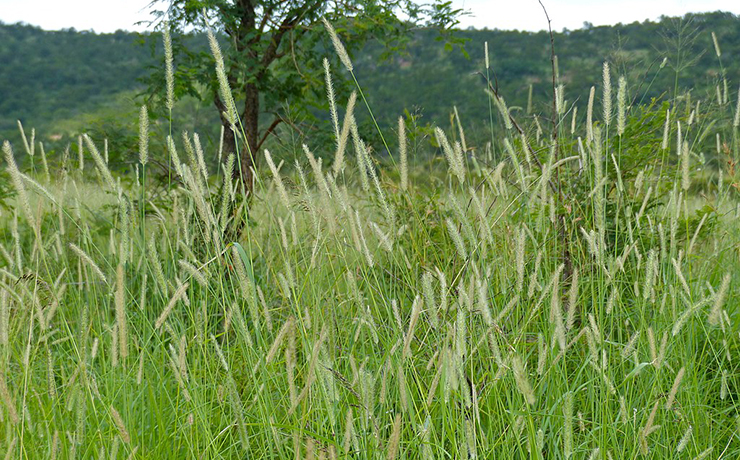
August 14, 2024
Producer groups have expressed grave concerns over calls for the Federal Government to declare buffel grass a “weed of national significance”.
This follows the Northern Territory (in July this year) and South Australia (in 2015) declaring the grass – widely grown in Queensland to improve pasture – as a weed.
“This (weed of national significance) list cannot include economically critical species, such as buffel grass. Its significance is not as a weed, but as an incredibly important pasture species,” AgForce CEO Michael Guerin said.
“The term ‘weed’ is context-dependent; a plant considered a weed in one situation can be valued in another.
“This is certainly true in the case of buffel grass. AgForce stresses the importance of recognising that buffel grass is heavily relied upon by graziers and reliant regional communities across Queensland.”
AgForce Senior Policy Adviser Dr Annie Ruttledge warned that declaring buffel a weed of national significance could lead to legislation for its removal.
“Clearly, this could be devastating for our livestock enterprises, the supply chain, and consumers who rely on meat from Queensland’s livestock producers as a vital source of protein and nutrition to feed their families,” Dr Ruttledge said.
The National Farmers Federation said any calls to declare the “productive agricultural plant” as a weed of national significance were “misinformed”.
Spokesperson Angus Atkinson said buffel grass was a vital resource for livestock operations and was carefully managed by producers to support grazing operations.
“It is a high-yielding plant renowned for its resilience in arid regions. It also provides significant environmental co-benefits, including land rehabilitation and erosion mitigation which is conveniently ignored by environmental groups,” Mr Atkinson said.
“Calls to list buffel grass as a weed of national significance pre-emptively ignores the economic benefits it provides to thousands of producers across Australia.
“Our members would much rather see it listed as a ‘feed of national significance’.”
Buffel Grass (Cenchrus ciliaris) is native to Africa, southern Asia and southern Iran.
The Invasive Species Council has described buffel grass as “one of the most severe invasive threats to the environment”.
“As buffel grass spreads, it pushes out native grasses, starves our wildlife and drives more extreme fires,” spokesperson Lyall Grieve said.
The NT Government says it has been plated widely for many decades for livestock production and land rehabilitation.
“Its palatability is moderate but it is well regarded as pasture because it grows rapidly under warm, moist conditions and persists under heavy grazing and drought,” the government says.
The NT’s weeds declaration means people have a duty to prevent their land becoming infested, to prevent it spreading on to other land, and to follow a weed management plan.
It does not mean that land managers are expected to eradicate buffel grass.
“Buffel’s resilience to fire enables it to survive and quickly produce new growth after burning, providing fuel for more fires. Buffel can create a fire hazard through increasing the frequency and intensity of fires impacting communities, culture and the environment,” the NT’s weed declaration states.
In the United States, introduced buffel grass has been blamed for increasing the intensity of wildfires.
























What is misinformed is the view of what a listing as a Weed of National of National Significance means.
WoNS is about taking a coordinated approach to reducing the negative impacts of an established weed WHERE IT IS HAVING NEGATIVE IMPACTS. Nothing more.
The impacts of Buffel grass on the environment are as undeniable as the grazing benefits of it.
A listing as either a Weed of National Significance or Weed Issue of National Significance could address some of these impacts without it needing to have perverse outcomes on production values.
The gamba grass WoNS listing is a case in point: pastoralists in the NT are still utilising gamba grass in some areas but have modified their farming management practices to reduce seeding and minimise spread off-farm. This is responsible land management.
A WoNS listing could assist farmers to do this with Buffel as well as reduce its impacts in areas of environmental and cultural significance.